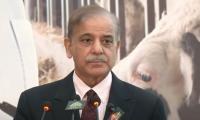The Punjab Assembly, under the leadership of Chief Minister Punjab Sardar Usman Ahmed Bazdar, passed 19 bills of crucial importance in record legislation in the first year and also in those situations when a strongest opposition comprising Pakistan Muslim League-N, Pakistan People’s Party and allies in the assembly where the government coalition has a nominal majority. Certainly the credit of significant legislation goes to the Chief Minister as well as to his Minister of Law and Parliamentary Affairs, Raja Muhammad Basharat, who not only strongly presented the government’s position in the Assembly on every issue, but also skillfully encountered every objection of opposition raised in the house.
The most important of the nineteen laws passed during the first year of the Punjab Assembly are the Punjab Local Government Act 2019 and the Punjab Village Panchayat Neighbour Hood Council Act 2019 through which a new local government system is being introduced in Punjab. According to Prime Minister Imran Khan’s vision, transferring powers to the bottom line is most effective as it will set up a separate local government organization in each village and area and transfer funds directly to them.
In this way, the people of every village and locality will be able to set their own priorities and solve their problems by spending the budget given at their own cost. In fact, this system will be a precursor to the change promised by the PTI made during the general election 2018. Other laws adopted include Punjab Finance Act 2018, Punjab Right to Public Services Act 2019, Punjab Domestic Workers Act 2019, Namal Institute Mianwali Act 2019, Punjab Occupational Safety and Health Act 2019, Punjab Prevention and Conflict of Interest Act 2019, Punjab Skills Development Authority (Amendment) Act 2019, Punjab Board of Technical Education (Amendment) Act 2019, Provincial Assembly of the Punjab Secretariat Services Act 2019, Mir Chakar Khan Rind University Dera Ghazi Khan Act 2019, Punjab Public Representatives (Amendment) Act 2019, Punjab Aab-i-Pak Authority Act 2019, Punjab Kidney & Liver Institute and Research Center Act 2019, Punjab Baab-i- Pakistan Authority Act 2019 and the Finance Act 2019.
Four legislative bills are ready for approval by the Punjab Assembly, including Punjab Alternative Dispute Resolution Bill 2019, Punjab Zakat and Usher (Amendment-I) Bill 2019, Punjab Zakat and Usher (Amendment -II) Bill 2019 and Punjab Land Revenue (Amendment) Bill 2019.
Eleven Bills have been submitted to Standing Committees for discussion, among them Punjab Minimum Wages Bill 2019, Provincial Employees Social Security (Amendment) Bill 2019, Punjab Medical Teaching Institutions Reforms Bill 2019, Punjab Animal Health Bill 2019, Punjab Khal Panchayat Bill. 2019, Punjab Water Bill 2019, Punjab Sentencing Bill 2019, Fort Monro Development Authority (Amendment) Bill 2019, Punjab Regularization Service Bill 2 019, Punjab Seized and Freezed Facilities (Hospitals and Dispensaries) Bill 2019, Punjab Regularization Service Ordinance 2019 and Punjab Seized and Freezed Facilities (Madaris & Schools ) Ordinance 2019.
Additionally, the Provincial Minister of Law, Parliamentary Affairs and Social Welfare Raja Basharat said that there are 32 important bills on which work is underway and they will be presented to the Assembly for approval. The most important of these are the Shelter Authority Bill 2019, the Police Order (Amendment) Bill 2019, the Punjab Police Order (Amendment) Bill 2019, Punjab Whistle Blowers’ Protection and Vigilance Commission Bill 2019, the Child Marriage Restraint Bill 2019 and the University of Mianwali Bill 2019. During first parliamentary year, 740 legal opinions were furnished to various government departments. Moreover 143 Notifications, Rules and Regulations and 49 MoUs and agreements were vetted.
The Department of Law and Parliamentary Affairs is ensuring that all laws, regulations and notifications of Punjab are provided online with the Urdu and English text so that they can be accessible to the public and meet the requirements for prompt justice delivery. Information technology is being used to launch a digital library, and a new website of the department has also been launched. The Committee on Legal Affairs, headed by Raja Basharat, so far, has conducted 12 regular meetings in which 134 proposals from different departments have been received. Of these, 47 recommendations and 25 policies or draft regulations and 62 recommendations for draft notification and judicial cases were sent to the Cabinet Committee for approval.
Chief Minister Punjab has set up 35 special committees under the chairmanship of the law minister, out of which 15 recommendations have been sent to the chief minister, while the remaining are under process. Four special committees of Punjab Assembly headed by the Law Minister are also working to resolve different chronic issues one of which has been working, including investigating the unauthorized delays in the most important development schemes of 2007-08 and the subsequent increase in cost. A number of established chemists have been established after consulting with the opposition.
A number of Standing Committees are active and routinely dealing with matters sent by the House. The Chief Minister has also appointed the committee headed by the Minister of Law, Raja Basharat, who is regularly holding its meetings. Besides maintaining general law and order, this committee is also playing a key role in resolving common conflicts of religious politico groups throughout the province. The committee is also responsible for ensuring the security during Muharram-ul-Haram and other occasions, especially in the processions and large gatherings.
Produced by Abdullah Kadwani and Asad Qureshi, “Behkaway” will air daily at 9 PM on Geo TV
Usman Riaz Gul and Zaheer Abbas appeared in the court on behalf of the PTI founder
The first drive held on February 15 examined 72,277 people free of charge on a nationwide basis
Deceased were identified as Senior Civil Judge Mardan, Hayatullah, son of Pir Gul, resident of Kalam
Sources say govt did not give proper response to points and reservations raised by PPP in the meeting
Deceased has been identified as Shah Bakhsh







